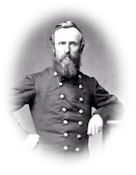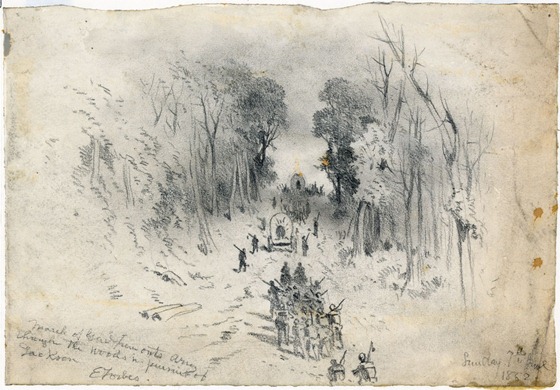Written from the Sea islands of South Carolina.
[Diary] Saturday, June 7, 1862.
An exciting day. This morning Mr. Eustis came over and told Mr. Hooper that we ought to be ready to go at a moment’s notice. For two weeks we have been quite unprotected, and last night an attempt was made to pass the pickets at Port Royal Ferry. A flat was seen coming. Our pickets challenged it, and the negroes exclaimed, “Don’t shoot, massa!” Then fifty men rose up in the boat and fired into the guard, killing four of them. The others fled to Port Royal, I believe, carrying dismay, and this morning all the ladies, cotton agents, and civilians, except our men, embarked on the Ottawa and went down to Hilton Head, Miss Walker among them. Our men, of the Commission, have been bold enough. Little Taylor has shouldered his gun and he this morning went to within four miles of the enemies’ lines. Ashly acted as guide to the scouts and others have gone readily to the aid of the soldiery. Yet Mr. Pierce says the soldiers are swearing at the “nigger lovers,” who have all gone — run away at the first danger. Not a man has gone — not one.
There is quite a panic in Beaufort and several gunboats have gone up to it, apparently to take away the commissary stores. It will then be evacuated, and what will become of the poor negroes if the masters return! It seems to me that this is a causeless panic.
We packed our trunks to-day according to Mr. Hooper’s orders, and we can run at any time, but leaving much behind us. I cannot bear the thought of going while these poor people must stay — Aunt Bess, whose leg is so bad; and some of the babies are ill now — they will suffer so in the woods and marshes if they have to fly. While we were packing this morning, Susannah, then Rina, came and asked anxiously about our going. I told them all we knew — that we might have to go off, but would not if we could help it; that our soldiers had all gone off to take Charleston and that Secesh might come down to attack us, and then the gentlemen would insist upon our going. Mr. Pierce came home about eleven, and he thinks we may remain. So we have composed ourselves as best we can. The gentlemen are going to patrol to-night, but I am more afraid of the exposure than of Secesh for them, and us too.
Mr. Pierce has gone to Beaufort again. Several gentlemen were here to-day, Mr. Horton among them, who wanted to know if we were “going to trust the Lord and keep our powder dry.” I want to have Mr. Pierce secure half a dozen guns for each plantation, and then if Secesh come, call upon the negroes to help us and stay. I am sure we shall be safe. I am entirely opposed to our flying. If Mr. Pierce were not going North, this would be the case, I am pretty sure, but he is determined to have us safe while he is gone. We have a boat in readiness to set out by water, and the horses are kept fresh to take us by land. One of them died to-day of poison plants, or colic, — one of the handsome bays.
I have been in other excitement lately and feel almost ill from it. But first about the alarm at Beaufort. It was so great that the arsenal was open, and anybody wishing it could go in and get a gun. It appears that the Pennsylvania regiment, or a guard of fifty, were stationed at Port Royal Ferry, and on this alarm they ran, after firing, and burned the bridge between themselves and the enemy. Their panic alarmed Beaufort. The ladies fled to the gunboats and to Hilton Head. They will return to-morrow probably. All Beaufort was in confusion. To-night all is safety and quiet there. We have had quite a cosy evening here — Mr. Pierce, Mr. Hooper, Miss Winsor, and I.











